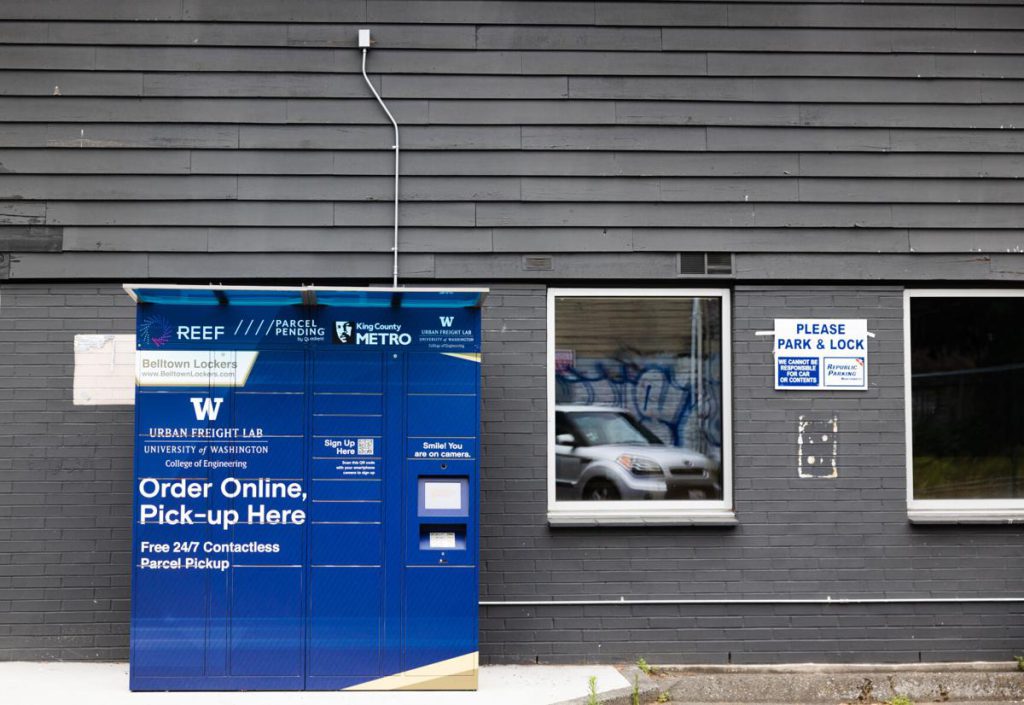
By Lorcan Stokes
The Urban Freight Lab, an initiative of the UW’s Supply Chain Transportation and Logistics Center (SCTL Center), has launched a pilot microhub to make carbon-reduced deliveries around the Belltown neighborhood of Seattle. The hub will be home to a number of electric vehicles, cargo bikes, and a “ghost kitchen” — a food truck from which restaurants can operate and deliver.
“As a professor and as the Urban Freight Lab, our goal is to give industries a place to experiment,” Dr. Anne Goodchild, founding director of the SCTL Center, said. “It’s to evaluate that experiment and be an unbiased evaluator and informant for city planning and city government.”
Located at the UW’s Belltown Lockers, the hub is a depository from which companies can ship products. From there, packages will be delivered to their end destinations by bikes, electric vehicles, and other low-carbon alternatives to traditional cars and trucks. While not entirely carbon-free, the hub’s methods emit significantly less carbon than normal deliveries.
“[Regular delivery] is more carbon-intensive than it could be, and that’s what’s wrong,” Goodchild said. “They use bigger vehicles than is necessary a lot of the time. Part of what underlines it is that traveling on the road and using the curb is free. It encourages us to use delivery services because they are really inexpensive.”
The site is also home to a similar initiative for restaurants in the form of a ghost kitchen, wherein restaurants can cook food for delivery without using their main site.
“Ghost kitchens are a way for restaurants to expand their footprint in a more cost effective way, especially with a lot of people having delivery services,” Goodchild said. “You can put them closer to the customers so they can reduce CO2 that way [and] it’s a new model that has been accelerated by COVID.”
Ghost kitchens could also relieve stress on local restaurants amid the impact of the COVID-19 pandemic.
“It’s been a way that the food business has partly responded to COVID,” Goodchild said. “Traditional restaurants are really expensive in real estate. You want a place near to people and for people to sit in the restaurant. With them not using a restaurant as a restaurant and just using the kitchen, that doesn’t make a lot of economic sense.”
As for the future, the hub’s delivery services could potentially use robots.
“They look like little coolers on wheels,” Goodchild said. “Someone has to put the food in the cooler and program it, and it drags itself basically to your door. You have a code and then [that] will open it.”